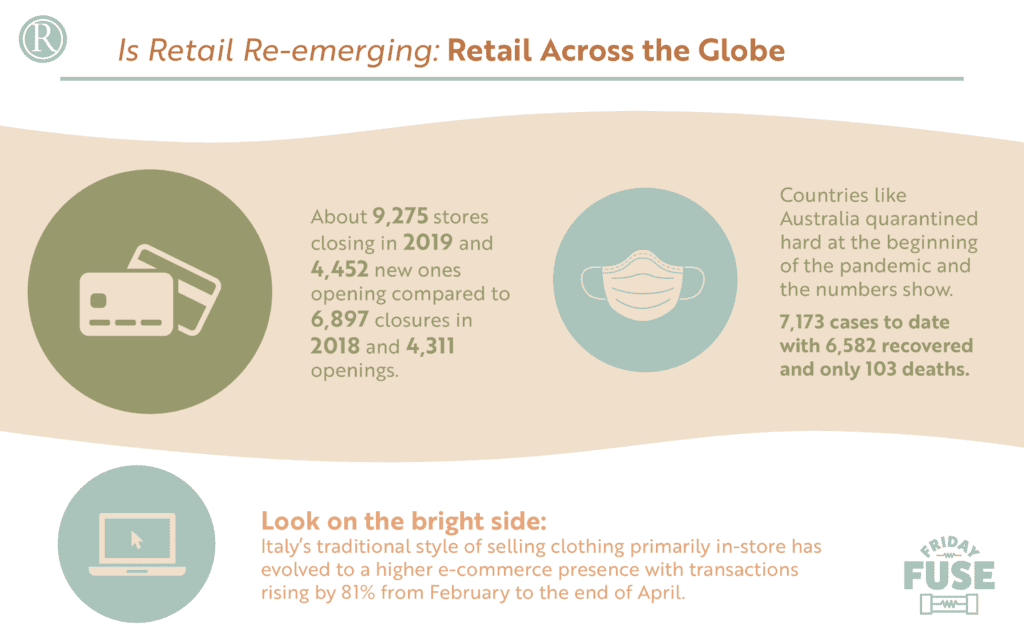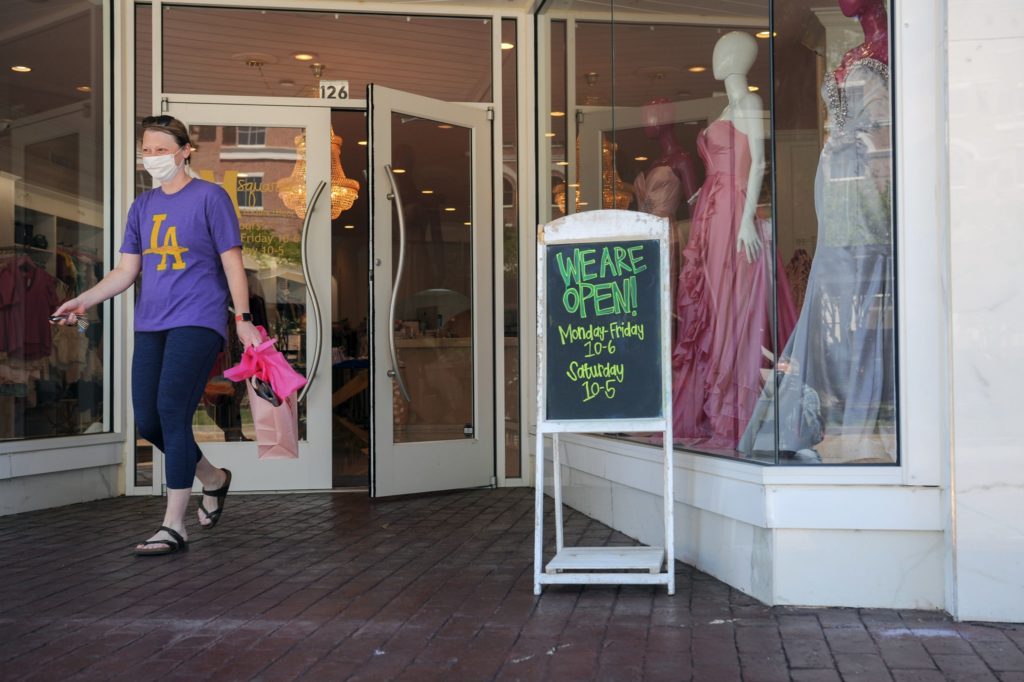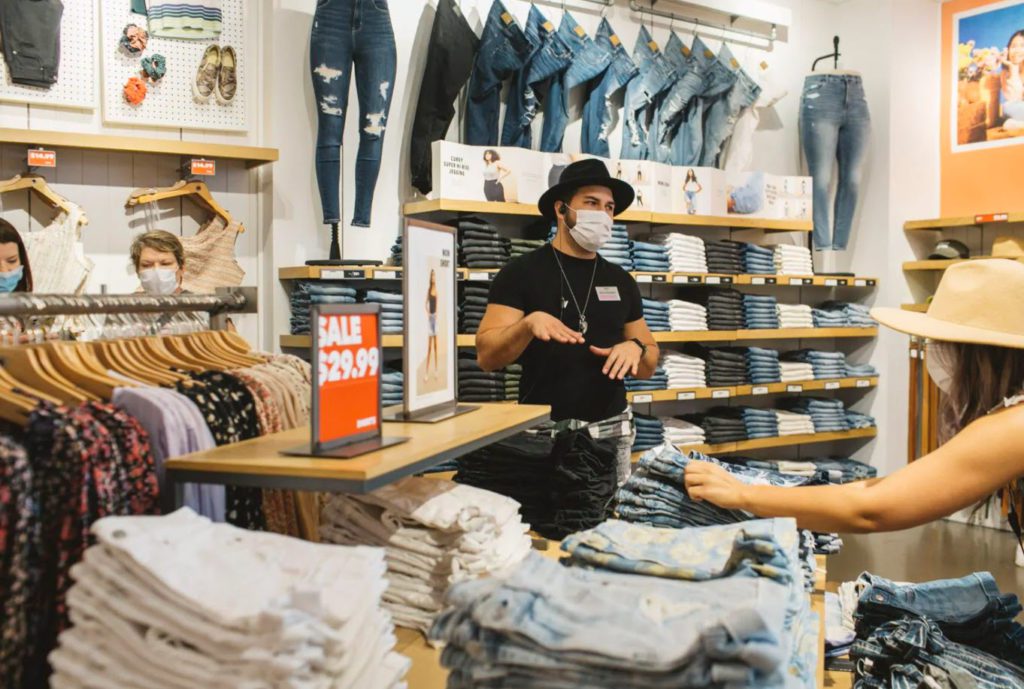
Countries around the world are struggling as retail businesses stay closed amidst the reality of the global pandemic.
In countries like Brazil, although their cases may not be as high, the death toll is astronomical. Brazil’s economy relies heavily on tourists and retail. And “At the end of April, 10% of the country’s malls had reopened according to Bloomberg. BR Malls, Brazil’s largest mall operator, had reopened four out of its 29 Brazilian locations as of May 22, according to a company spokesperson.” [i]
Experts are concerned with how Brazil’s economy will bounce back predicting that they will contract by 5.3% in 2020. While unemployment is expected to reach at least 17%. On the other side of the world, Italy’s retail market suffered greatly from the pandemic as it was hit hard by the coronavirus. With large luxury retailers like Gucci, Versace, and Bottega Veneta, the market was hit hard with sales down as much as 40% in some cases. [i]
With only about a third of Italy’s stores reopened, Italy historically has relied heavily on tourism. However, they have begun offering inflation-linked retail bonds to investors. Using this as a way to jumpstart its suffering economy. [i] Along with that, e-commerce across Italy is up drastically. [i]
“According to McKinsey, e-commerce transactions in Italy rose by 81% from February to the end of April. Italian brands like Diesel and Bulgari have launched e-commerce platforms for the first time.” [i]

“…according to the Australian Bureau of Statistics’ May report, which estimated them to have fallen a record 17.9% in April after a 8.5% spike in March. The same period also saw the nation’s unemployment rate increase a record one-month jump, from 5.2% to 6.2%.” [i]
On the bright side, retail businesses like Melbourne-based Afterpay and Sezzle, have seen a dramatic increase in business and growth. Afterpay is a shop now, pay later online company allowing retailers to offer layby for customers with 0% interest. [iii]
Likewise, online boutiques using social media marketing have been perfectly set up for success in a situation like the one our world is in. Tis is as long as these brands can conquer quick shipping and easy returns. Experts say that impulse shopping has been slowly decreasing, especially for the Gen Z and millennial groups.

With that being said, these younger age groups are thinking more methodically with the spending of their hard-earned money. This of course is making online shopping and budgeting a big advantage. With the numbers stating that about 9,275 stores closing in 2019 and 4,452 new ones opening compared to 6,897 closures in 2018 and 4,311 openings. Was retail declining before this pandemic even hit? [iv] Are entertainment centers and food halls where the money will be in the upcoming future? Or will the pandemic negatively affect the numbers predicted for these as well?
Unfortunately and fortunately, as consumers, all we can do is wait. And hope that our favorite department store, grocery store, food hall, outdoor shopping mall opens back up. Many shoppers have spent a drastically lower amount of money on entertainment this year and are looking to give back to their local communities. This means local coffee shops, local boutiques, local grocery stores. A strong presence in the local community will impact a number of businesses as local governments attempt to bring businesses back to normal.
As a company helping build and keep these facilities up and running, Rogers Electric is here to ensure that these businesses have products in a safe, well lit, smoothly run facility to give to their customers when they decide to visit again in person. Head on over to one of Rogers Electric’s blogs all about the future of retail and how we believe retail will survive over on the blog.



